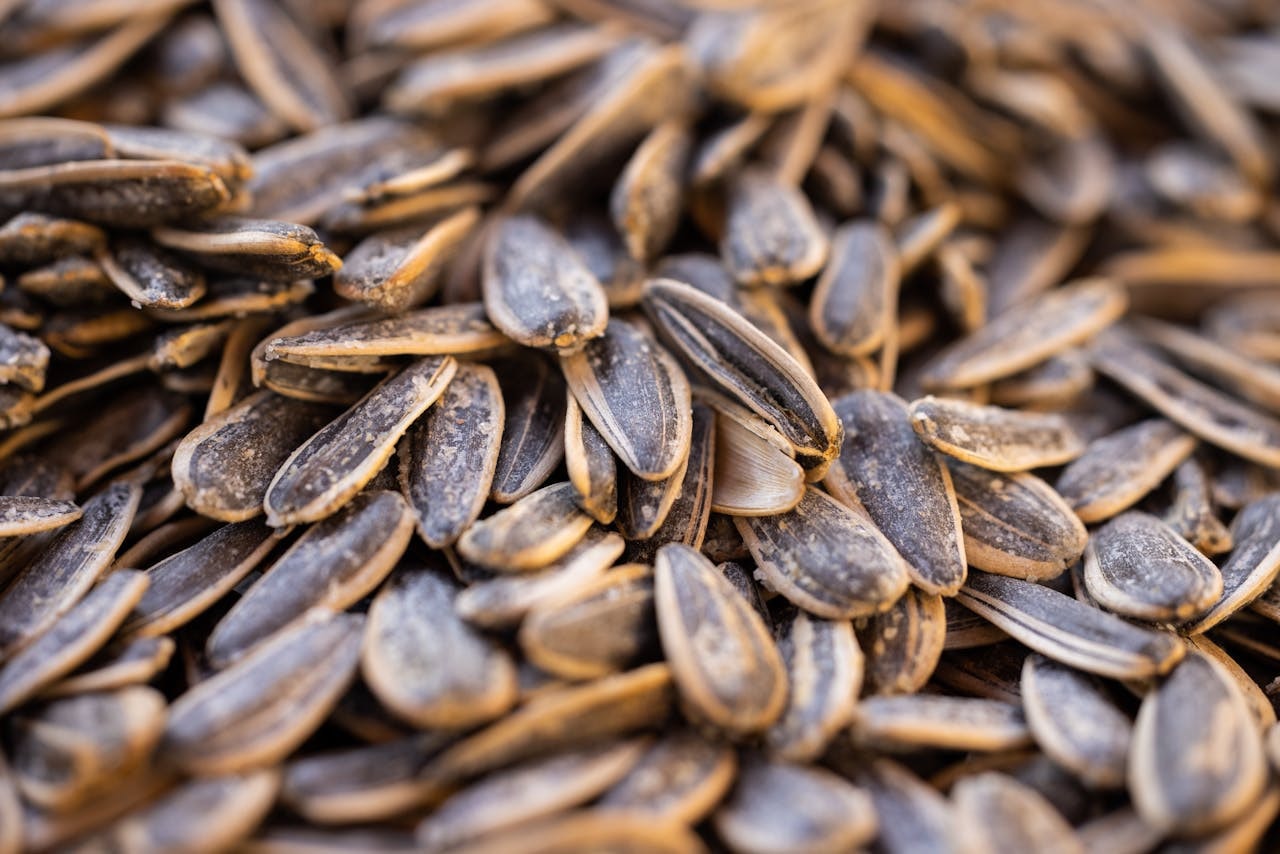Sunflower seeds are a popular, delicious snack with many nutritional benefits, especially during Tet. However, this type of seed can be counterproductive if you use it incorrectly.

To ensure safe and healthy eating of sunflower seeds, here are a few things to keep in mind:
Don't eat too much
Sunflower seeds are rich in nutrients, including healthy fats, protein, and vitamins. However, eating too many of these seeds can cause problems such as:
- Weight gain: Sunflower seeds are high in calories, especially when eaten in large quantities without enough exercise to burn off the excess energy. A small serving (about 28g) provides 160-200 calories. If left unchecked, overeating sunflower seeds can lead to unwanted weight gain.
- Risk of cadmium accumulation: According toLivestrong, sunflowers easily absorb cadmium, a heavy metal from the soil. Although the amount of cadmium in seeds is usually low, continuous consumption over a long period of time can affect kidney function.
Avoid eating too many salted nuts or other seasonings.
Processed sunflower seeds are often salted or seasoned to enhance flavor. However, eating too many salted seeds can be harmful to your health:
- High blood pressure: The high salt content in seeds can easily increase blood pressure, especially in people with a history of cardiovascular disease or high blood pressure.
- Causes water retention: Eating too much salt causes the body to retain water, causing a feeling of fullness and discomfort.
So, choose unsalted or low-salt sunflower seeds to reduce your sodium intake; read labels carefully and check the amount of sodium in each package. If you like salty seeds, make your own by roasting unsalted seeds at home, then adding a small amount of seasoning.
Do not eat sprouted seeds
Some people enjoy eating sprouted sunflower seeds, but these can pose health risks because they are susceptible to bacterial contamination.
- Food poisoning: Bacteria such as Salmonella can cause nausea, diarrhea, and abdominal pain. This risk is even higher in children, the elderly, and people with weakened immune systems.
- Spoils faster than regular seeds: Germinated seeds are susceptible to mold if not stored properly.
Allergy prevention
Some people may have an allergic reaction to eating sunflower seeds. Symptoms include itching or swelling of the mouth, lips, or throat; redness or rash on the skin. In rare cases, a sunflower seed allergy can lead to anaphylactic shock, which can cause difficulty breathing, low blood pressure, and even be life-threatening if not treated promptly.
If you suspect you are allergic to sunflower seeds, stop eating them immediately and consult your doctor. People with a history of food allergies should be cautious when trying these seeds.
Preserving sunflower seeds
According toHealthlineSunflower seeds are high in healthy fats, but these fats can oxidize if stored improperly, leading to rancidity. Rancid seeds have an unpleasant odor, bitter taste, and can be harmful to health.
- Store in an airtight container: Keep sunflower seeds in an airtight container or zip bag to avoid exposure to air - the main cause of fat oxidation.
- Store in a cool place, away from sunlight: Sunflower seeds should be kept in a cool, dry environment. High temperatures and strong light can cause the seeds to spoil faster.
- Store in the refrigerator or freezer: If you do not use the seeds for a long time, store them in the refrigerator or freezer. At low temperatures, the oxidation of fats will slow down.
- Check the taste before eating: Damaged seeds will have a strange smell or bitter taste, you should throw them away to avoid affecting your health.
PV (synthesis)